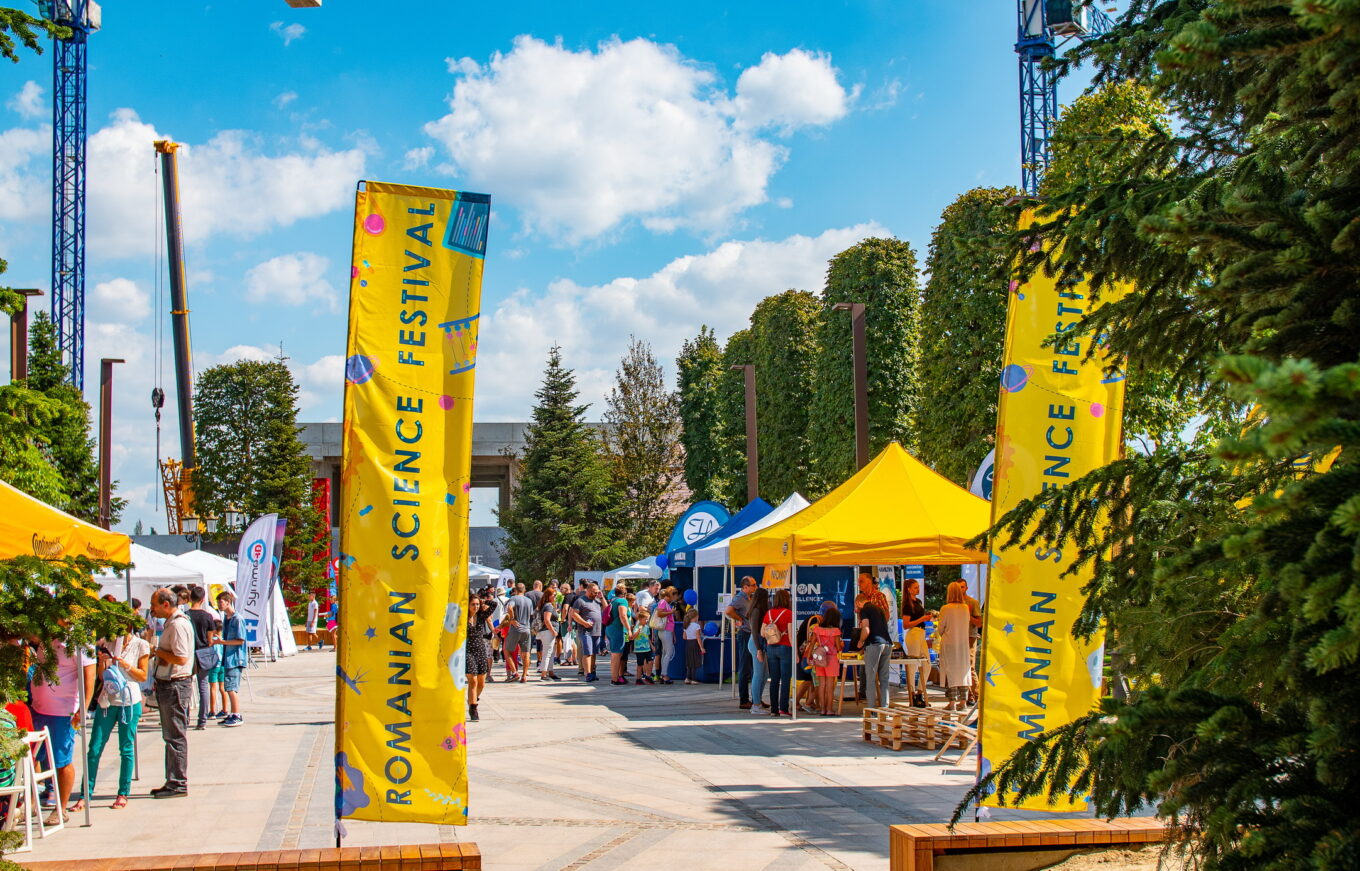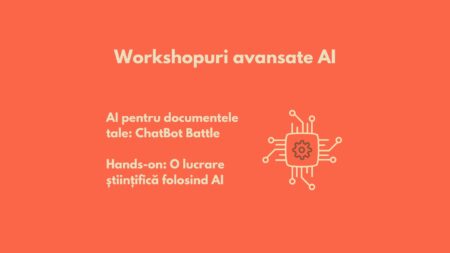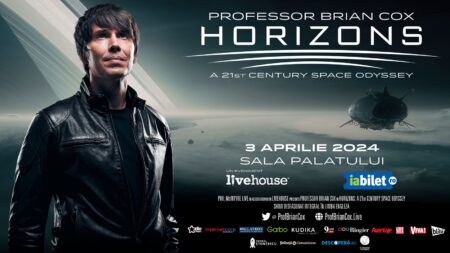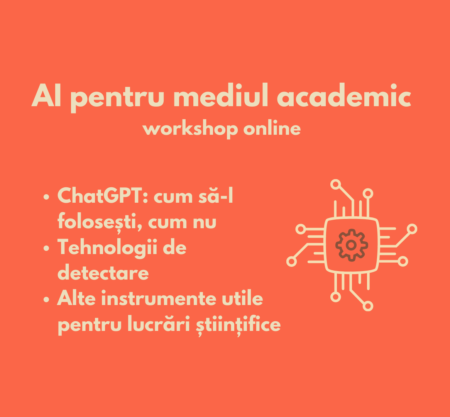The work of popularising science is rarely rewarded in any way. But there are exceptions. One of the most prestigious awards a science communication project can receive is the one offered by the Falling Walls Science Summit in Berlin. A science festival in Romania, Romanian Science Festivalis this year's winner. I spoke to Oana Romocea, co-founder of the festival, to find out what motivates the team and how a group of researchers from abroad manage to organise events here.
For a child to want to do science, he or she needs to be inspired and motivated by someone who already has a career in science.
What made you set up this festival?
I started the Romanian Science Festival out of two beliefs: (1) education can be exciting and (2) passion is contagious. All four founding members of the RSF have been involved in programmes to promote research and science at Oxford to students and the community. We told ourselves that if children in Oxford can learn about science in an interactive way, then so should children in Romania. So with the Romanian Science Festival we wanted to meet two big needs. The first need we identified is the need for role models. For a child to want to do science, they need to be inspired and motivated by someone who already has a career in science. That's why we are a community of over 120 students, researchers and professionals from the academic diaspora, but also from Romania, who are passionate about what they do and want to pass on their passion. The second big need is the need for opportunities. Students need opportunities to discover science in a practical and applied way, something that is done too little today in Romanian schools.
Through the Romanian Science Festival we want to create a community of people who are passionate about science, who adhere to our ethos and values, who believe that education changes only through the power of community, through examples, through role models, through initiatives, through passion, through excellence, through well-being...in a word, through the joy of learning. That's why our motto is a call to exploration: Don't be bored! Be curious!
We see that there is a need and a desire to discover the sciences
What are the biggest difficulties you face?
The official Romanian Science Festival came into being in 2019, although we had three pilot projects before. In our three years of existence we have brought science to over 100,000 children from all over the country through countless events, projects and initiatives involving RSF mentors. Such a large growth of a project started on a volunteer model and organised in one's own time is not sustainable. Thus our biggest need is for partners to support us and help us grow in a sustainable way. In May 2022 we resumed physical events and organized RSF in Timisoara. The event was so successful that we were invited to organise RSF in seven other counties. In September we also organised the event in Baia Mare and Pitesti, where 700 volunteers signed up. This makes us very happy because we see that there is a need and a desire to discover science, but we don't have the financial resources for 7 events organised on such a large scale, especially that this year we extended the festival to three days to go with the RSF Caravan to reach rural and small urban children. So our biggest need would be for partners to come and support us financially so that we can create an organisational structure to make RSF sustainable.
When you study at a university abroad, involvement in such events is mandatory because it gives you the opportunity to present your research to a wide, non-specialist audience
I noticed that most of the guests are from the diaspora - is there any particular reason for this? What is it?
Most of the invitations are from the diaspora because that's where our network of contacts is. Eliza, Șandor, Cip and I met when we were all living in Oxford. We were all involved in what they call "outreach" events and so we met other Romanians studying abroad and having this experience. When you study at a university abroad, getting involved in such events is mandatory because it gives you the opportunity to present your research to a wide, non-specialist audience. So, first and foremost we looked for people who have experience of getting involved in such events. We were happy to see that, at each event and project, there were researchers, professionals and people passionate about science from Romania who came to us and joined the project. We welcome anyone who respects the ethos and values of the RSF community. We want very much to build these links between the academic diaspora and the educational system in Romania, to create a global community of Romanians passionate about science.
We want Romanians to trust science, but they need to understand it first
What has happened unexpectedly for you because of this project?
What surprised us was the great need for students to interact with STEM subjects in this way. At the first festival we organised in Timisoara, we had 6000 participants in 6 hours. It was something extraordinary! That was also when we wanted to grow this project and reach students who don't have the opportunity to discover science in this way. We have the same feeling this year when we came back with the festival in physical format. In all three big cities where we organised it, Timisoara, Baia Mare and Pitesti, we have had an extraordinary involvement from the community. In Maramureș we had 5000 participants and in Argeș we had a record 10,000 people. Participants said that only at New Year's Eve concerts had they seen so many people in the city centre.
This is also the reason why from this year onwards, we aim to have 30-40% of the participants from rural or small urban areas in every project or initiative we develop. We want Romanians to trust science, but to get there they need to understand it. They can't understand it if they haven't studied it, and that starts at school.
About the project
Romanian Science Festival is founded by Eliza Casapopol - Artificial Intelligence Specialist at Microsoft, The Netherlands, Sandor Kruk - Astrophysics Researcher at Max Planck Institute, Germany, Ciprian Ploștinar - Particle Physics Researcher at European Spallation Source, Sweden and Oana Romocea, Communications Officer, The Alan Turing Institute, UK and Oxford for Romania Board Member.
The festival is organised in the same format in all cities. On the first day of the festival, we go with the RSF Caravan to rural and small urban areas. On the second day of the festival, mentors from abroad hold workshops in schools and colleges. Romanian students and researchers present their university experience and talk about their careers. These workshops aim to introduce the latest discoveries in specific scientific fields and inspire students to turn their passion for STEM disciplines into a career. The third day of the festival is dedicated to an outdoor experiment fair where everyone aged 3 to 103 is invited to discover science through interactive experiments.
Science Engagement Award
The Romanian Science Festival was selected as a Winner by the Falling Walls Foundation in the Science Engagement category. This gives the team, through Sandor Kruk, the opportunity to present our project in Berlin on 7 November to a worldwide audience. Further, we can keep our fingers crossed for them to win the Science Breakthrough of the Year award, which will be awarded at the Falling Walls Foundation Science Summit. More about the Falling Walls Science Summit 2022 event can be found at here (language: Romanian).





